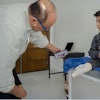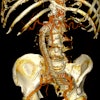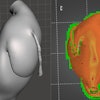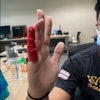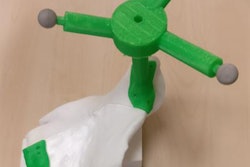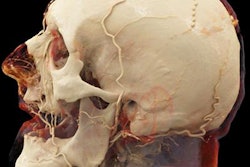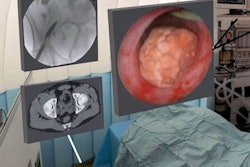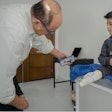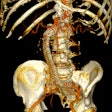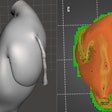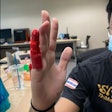Dear Advanced Visualization Insider,
3D printing continues to gain stature in healthcare as its clinical value is demonstrated. In the latest story out of our Advanced Visualization Community, investigators from Spain added to this effort by showing how 3D printing benefited surgery for pelvic bone tumors.
The group's work centered on creating patient-specific 3D-printed surgical guides based on CT scans and then using these guides to improve the efficiency of tumor resection. The researchers discussed the findings of their study in an oral presentation at the recent Computer Assisted Radiology and Surgery (CARS) congress in Rennes, France.
Despite the many visual advantages 3D printing offers clinicians, the technology alone may not be enough to meet the informational demands of some complex surgical procedures. Take, for example, a recent case involving a woman with ovarian cancer and an atrial septal defect. Researchers from a top hospital in Italy relied on a combination of 3D printing and augmented reality (AR) technologies to plan surgery for the patient.
Yet augmented reality has proved useful in facilitating simpler procedures and tasks as well. A team from a distinguished institution in the U.K. described the advantages of using an AR headset to view CT scans while performing minimally invasive surgery. A separate group from Norway found that physicians were able to identify liver tumors more readily by examining 3D models with AR technology than by looking at conventional MRI scans.
On the subject of MRI, researchers from France used 3D MRI to capture changes to the structure of the fetal head -- known as fetal head molding -- during the second stage of labor. They suggest that this discovery may have serious implications for vaginal delivery moving forward.
Finally, a new case study out of Belgium revealed the power of cinematic rendering data reconstruction to provide a photorealistic look at human anatomy. The clinicians behind this work produced several cinematically rendered CT angiography scans to give them insight into a patient who died of unknown causes.
Visit the Advanced Visualization Community at AuntMinnieEurope.com for more on current events and research in the field. And, as always, contact me with requests for any topics you'd like to see covered.
